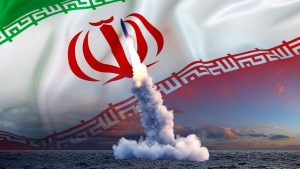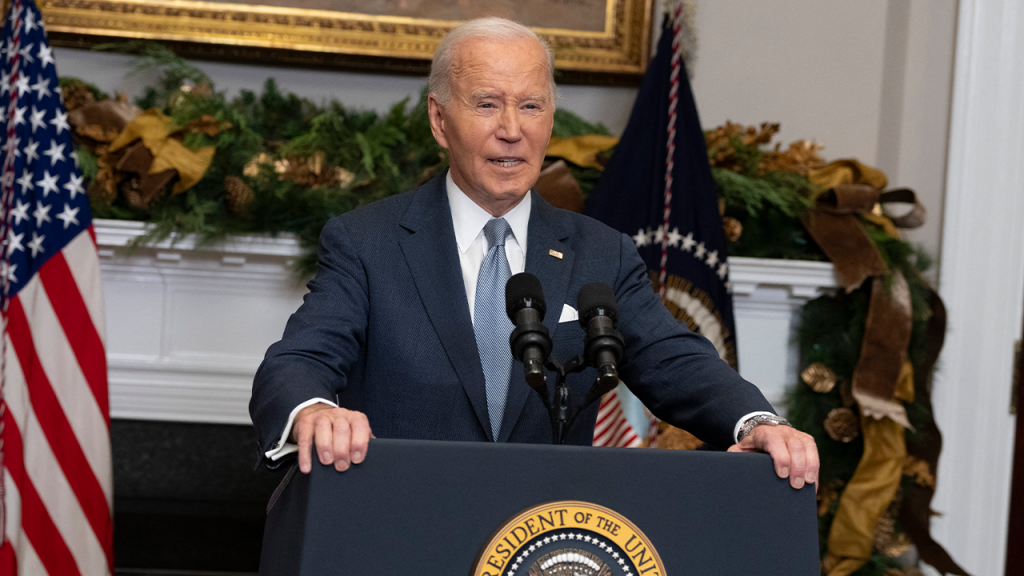Paragraph 1: The Fall of Assad and Biden’s Response
President Biden addressed the nation on Sunday, confirming the fall of Syrian dictator Bashar al-Assad, whose regime crumbled under the pressure of a protracted civil war. Assad’s departure, after decades of brutal rule marked by widespread human rights abuses and the use of chemical weapons, was hailed by Biden as a "fundamental act of justice" and a "moment of historic opportunity" for the Syrian people. However, the President also acknowledged the inherent "risk and uncertainty" accompanying such a significant power shift. He outlined the U.S. response, focusing on supporting neighboring countries, ensuring regional stability, and engaging with Syrian groups to facilitate a transition to an independent and sovereign nation. This support would involve high-level diplomatic engagements and continued efforts to counter ISIS, including securing detention facilities holding captured fighters.
Paragraph 2: U.S. Focus on Regional Stability and Humanitarian Aid
Biden emphasized the U.S. commitment to bolstering stability in the region, especially in eastern Syria. This commitment includes protecting U.S. personnel and resources from potential threats emanating from the power vacuum left by Assad’s departure. The U.S. will also continue its mission against ISIS, a critical component of ensuring regional security. Alongside these security concerns, the President highlighted the dire humanitarian situation in Syria and pledged U.S. support in providing relief and aiding in the country’s reconstruction after more than a decade of devastating conflict. This commitment extends to engaging with all Syrian groups, including through the United Nations, to establish a transitional government and move towards a future free from the Assad regime’s oppressive grip.
Paragraph 3: Assad’s Flight to Moscow and the Complexities of the Rebel Forces
Reports suggested that Assad, along with his family, had fled to Moscow and been granted asylum by Russia. While Biden acknowledged these reports, he stated that the U.S. lacked official confirmation of Assad’s whereabouts. The President also addressed the complexities surrounding the rebel groups that overthrew Assad, acknowledging their own history of human rights abuses and terrorism. While welcoming their initial statements promising a more just and democratic future, Biden stressed the importance of judging these groups by their actions rather than mere words. The US, he said, would remain vigilant and assess their commitment to human rights and democratic principles as they assume greater responsibility in governing Syria.
Paragraph 4: The Search for Austin Tice and the Trump Perspective
Amid the tumultuous events unfolding in Syria, President Biden reiterated the U.S. commitment to securing the release of American journalist Austin Tice, who has been held captive in Syria for over twelve years. The plight of Tice, and other Americans in Syria, remains a priority for the U.S. government. In contrast to Biden’s approach, former President Trump had previously cautioned against U.S. involvement in the Syrian conflict, advocating a non-interventionist stance. Trump, in his social media posts, commented on Assad’s flight, blaming Russia for abandoning its support of the Syrian dictator and attributing this shift to Russia’s involvement in the war in Ukraine. He further opined on the weakened state of Russia and Iran, and called for a ceasefire and negotiations in the ongoing conflict.
Paragraph 5: Netanyahu’s Declaration and the Israeli Perspective
Israeli Prime Minister Benjamin Netanyahu welcomed the fall of the Assad regime, attributing it to Israel’s actions against Hezbollah and Iran, Assad’s key allies. He described the situation as both an opportunity and a potential danger, reflecting Israel’s complex security concerns in the volatile region. Netanyahu extended a hand of peace to various groups within Syria, expressing Israel’s desire to establish peaceful relations with the emerging powers. However, he also underscored Israel’s determination to defend its borders and interests against any potential threats arising from the changing Syrian landscape. This statement came amidst Israel’s ongoing conflict with Hamas, further highlighting the precarious security situation in the region.
Paragraph 6: The Unfolding Situation and the Path Forward
The fall of Assad marks a pivotal moment in the Syrian conflict, but the path ahead remains fraught with uncertainty. The complex interplay of regional powers, the involvement of various rebel groups with differing agendas, and the ongoing humanitarian crisis all contribute to a volatile and unpredictable environment. The U.S., under President Biden’s leadership, has outlined a strategy focused on regional stability, humanitarian aid, and cautious engagement with the new actors in Syria. The international community will be closely watching the unfolding events, as the future of Syria and the wider region hangs in the balance. The need for a peaceful transition and a stable, inclusive government in Syria is paramount to preventing further bloodshed and suffering.










